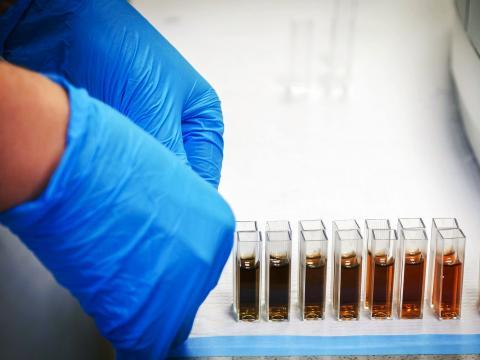
BMC Seminar Thursday 3rd of March at 12:00 on Zoom: https://eu01web.zoom.us/j/65673891039
Speaker: Karen Kristjánsdóttir, Doctoral student under the supervision of professors Stefán Þ. Sigurðsson, Department of Medicine, School of Health Science, University of Iceland and assistant professor Þorkell Guðjónsson, Biotech Research & Innovation Centre, University of Copenhagen
Title: Epitranscriptomic regulation of DNA repair genes
Abstract: DNA double-strand breaks (DSB) are thought to be the most cytotoxic form of DNA damage as unrepaired or incorrectly repaired DSBs can result in cell death or cause chromosomal translocation, an early step in the aetiology of carcinogenesis. The ability to detect and correctly repair DNA DSB is vital for cells to maintain genomic stability and to transfer correct genomic information from one generation to the next.
ALKBH3 and FTO are dioxygenases with well-described functions in DNA and RNA alkylation repair with known mRNA demethylase activity, FTO removes N6-methyladenosine (m6A) and ALKBH3 N1-methyladenosine (m1A). Our current research has revealed that these two dioxygenases are epitranscriptomicly regulating RNF168, a key protein in DNA DSB repair, and thereby possibly influencing the DNA DSB repair response.
Epitranscriptomics or RNA-epigenetics refers to dynamic and reversible modifications that are placed on the RNA and can alter the function, structure, and the catalytic activity of RNAs, thereby forming a new layer of post-transcriptional regulation that do not involve any changes to the RNA sequence.
Our group and others have revealed that the RNF168 mRNA contains both m6A and m1A methylation and our research has demonstrated that ALKBH3 and FTO are responsible for removing these methylations from the RNF168 mRNA. This novel regulation of DNA repair by removing mRNA methylation could prove to be a vital factor to cancer development as lack of ALKBH3 or FTO may be used as a potential marker for cancer treatment response due to both lack of alkylation repair and perhaps DNA DSB repair deficiency.
This talk will summarise our latest findings, possible next steps and give a short introduction into the new and exciting world of epitranscriptomics.
